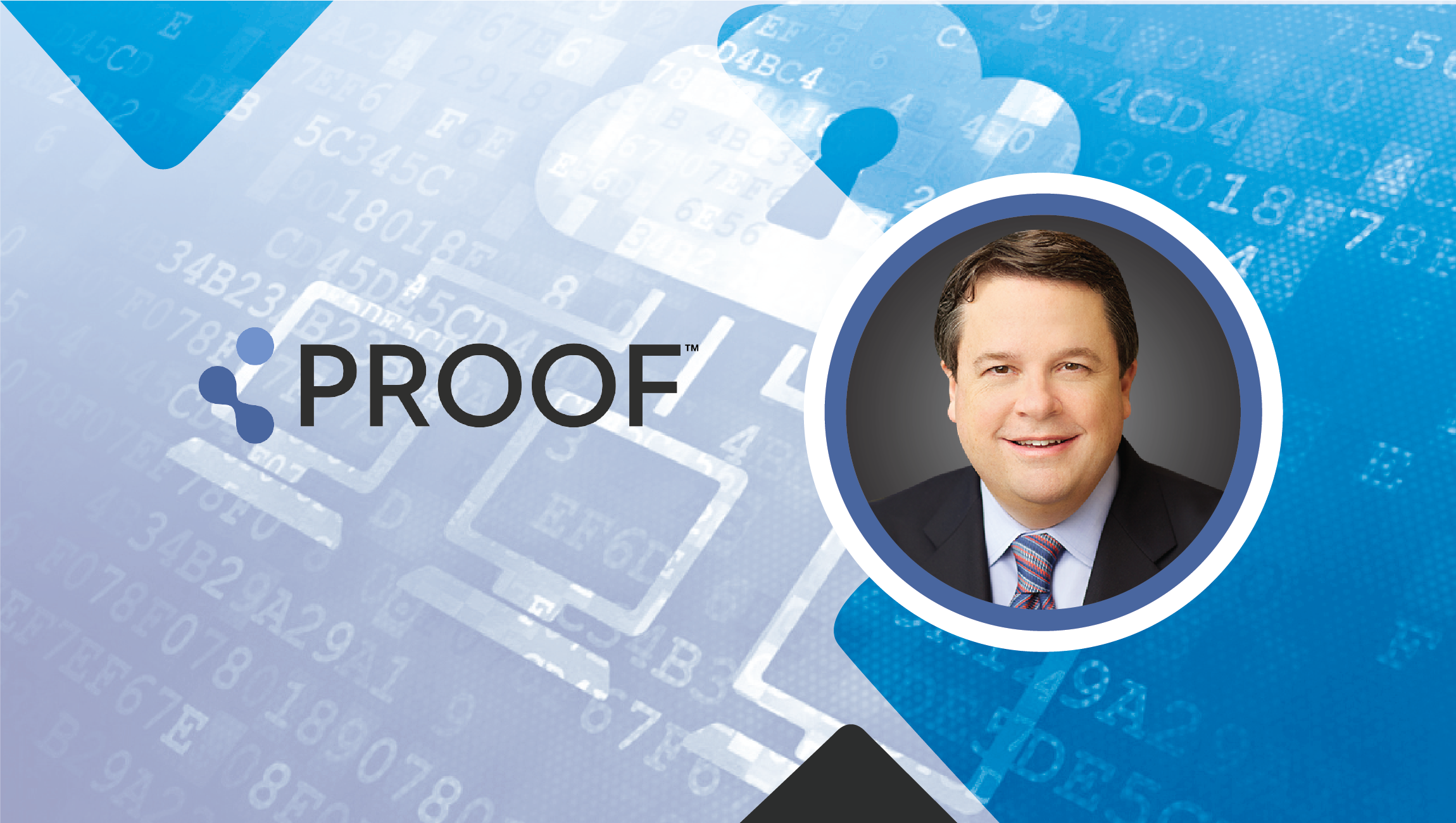What led you to develop a platform that measures the impact of Marketing and Communications?
For years, business leaders have demanded measurable results from marketing spend. These voices are getting louder as concerns about ad fraud and a softening economy put more pressure on the Marketing organization. To survive and thrive, marketers need to speak the language of business and furnish results tied to the bottom line.
We designed Proof to solve the most complicated problems CMOs face, including a fully computed view of attribution that determines the relative contribution of each investment or activity. In my years of experience with large B2B companies like Honeywell Aerospace and BMC Software, I saw how long sales cycles complicate and obscure executive understanding of marketing’s impact. Without acknowledging the time lag, Marketing and PR activities appear untethered to results and not connected to any sort of incremental financial return.
How does Proof Analytics differ from marketing attribution tools that are available today?
Crucially, Proof is not martech but business impact analytics. Martech, or any other single tech stack, generates really important data, but that’s only part of the solution to this problem.
Our cloud-based solution federates data across teams and silos to compute time to impact and the strength of impact, as well as show the “ripple effect” of multiple correlated relationships that extend across time and space.
Companies use Proof to connect all sorts of time series data from any part of the organization – for example, Marketing, Communications and HR – to determine their ultimate impact on revenue, cash flow and margin. Proof achieves this level of analysis by identifying whether a correlation exists between datasets and then quantifying how long that relationship takes to materialize and monetize.
Another major differentiator is attribution. Proof doesn’t use modeling or weighting, which are very vulnerable to human bias. We use correlation, time, and impact to deliver an accurate computed portrait of what actually happened and how much each piece contributed to success or failure.
What kind of metrics and predictive insights does Proof Analytics provide clients?
Marketers’ traditional measurement tools tabulate KPIs such as visits, clicks, and costs. However, these volumetric data points don’t map to anything that matters to the C-suite.
Proof is getting a lot of support from the C-suite because we are the only platform that gives volumetric data meaning and significance to the business outcomes they care about. Proof identifies the impact of spend on critical areas of impact such as audience decision psychographics and sentiment (awareness, confidence, and trust), sales performance (deal generation, deal expansion, and deal velocity) and ultimately financial performance (revenue, margin, and cash flow.)
Proof delivers cause-and-effect analysis quickly to every member of the marketing team to help them predict ROI over time and quantify the level of risk associated with that investment.
Could you share two success stories of customers who used your product to optimize marketing budgets?
A leader in the global high-tech manufacturing industry struggled to capitalize on its dominance to sell diverse products within its portfolio to existing customers. The company was saddled with a long sales cycle, largely driven by an extremely risk-averse industry culture.
Proof’s analytics solution revealed that marketing activities were overfunded relative to business value by some 7% and identified how to re-allocate the spend to maximize results. They initiated new mid-stage campaigns, which drove a 28% increase in deal expansion. They also found that 74% of existing customers began to purchase products from areas of the portfolio they had never considered before. And finally, overall deal velocity improved by 5%, boosting cash flow.
In another instance, a “big 3” enterprise software firm used Proof’s solution to overcome the challenges of a long business cycle and siloed customer awareness of the company’s offerings. The company had historically been biased toward sales activities, with marketing budgets sacrificed in favor of having more reps with “feet on the street.” On the upside, the company often won when invited to submit an RFP, so staying top-of-mind was crucial.
Proof’s solution correlated awareness metrics with RFP requests and then helped drive a 39% improvement in the ratio, thanks to the increased impact of communications and marketing activities. Sales velocity improved 8%, while the number of closed deals per quarter rose 16%.
How does Proof Exchange help a company break down data silos across teams?
Discussions about data lakes and data unification tend to focus on the technology, and it’s true that most marketing teams lack the resources and expertise to build their own unified data solution. But there’s also a very real human challenge involved, which is that surrendering data to a central hub violates all kinds of norms about who controls the information.
Proof Exchange offers an elegant solution to these challenges by federating data across teams so that contributors retain individual control while joining the collective whole. Employees and teams can share relevant data and collaborate to compute business impact, but retain ownership over the resources they create.
Thanks to this structured, rules-based sharing and the Exchange’s secure architecture, large marketing teams also can share resources with agencies outside the company, thus enabling synthesis of otherwise-siloed datasets.
What kind of data do you need to check the success of a marketing team/strategy/campaign?
Companies that use Proof to maximize insights into their marketing operations are able to create a picture of business-wide impact. Companies provide their own data, and Proof often consults with them to help identify the most important areas of measurement. Proof then taking that data and connects all the dots to demonstrate the relevance of those investments and activities to the bottom line.
How do you manage data? What systems does Proof Analytics integrate within the marketing space?
Proof works atop a company’s existing technology stack to process data that employees and teams share.
What startups are you watching/keen on right now?
A software company called CapShare helps companies manage their market capitalization tables and track who has how much of what kind of stock. The interface is easy to set up and use.
How do you prepare for an AI-centric world as a business leader?
Proof employs what we like to think of as “augmented intelligence”, essentially merging the benefits of machine learning with specialized human knowledge. For example, IBM Watson can read daily every scientific paper published worldwide about pancreatic cancer and present aggregate findings, which no single human doctor could ever do. But determining a treatment plan is still the doctor’s domain, because of all the empathy, intuition, personal history, and belief that they bring to the decision-making process.
Right now, we’re seeing a surge in AI in select areas, but for low-value, repetitive jobs. It’s more about automation than artificial intelligence.
This Is How I Work
One word that best describes how you work.
Leadership.
What apps/software/tools can’t you live without?
My setup is much the same as everyone’s — I rely heavily on my smartphone and laptop as communication devices that allow me to connect across multiple channels. In terms of specific apps or platforms, I blog on LinkedIn and would be toast without its networking capabilities.
What’s your smartest work-related shortcut or productivity hack?
Delegation. A team of smart individuals who possess unique talents and backgrounds deserves to be entrusted with major initiatives and challenges.
What are you currently reading?
On the business front, I’m reading The New Strategic Selling by Robert B. Miller and Stephen E. Heiman, a classic that’s still relevant today. Richard Branson’s Business Stripped Bare and Harold Burson’s The Business of Persuasion are also in my queue.
For off-the-clock enjoyment, I’m reading 1453: The Holy War for Constantinople and the Clash of Islam and the West by Robert Crowley, another work whose subject matter is still significant given today’s geopolitical situation.
What’s the best advice you’ve ever received?
Listen more than you talk.
Something you do better than others – the secret of your success?
In a word, innovation. I have the consistent ability to visualize something before it’s real, to spend time understanding challenges and conceive of the right people, processes, and technology to address them. I’m honored to have been named twice to the Holmes Report’s Innovator 25, most recently this year. I originally made the list in 2013 for work relating to an early version of Proof, and a more mature version of that same technology also won Innovation of the Year.
Tag the one person whose answers to these questions you would love to read:
Kelli Parsons, chief communications officer of United Technologies.
Thank you Mark! That was fun and hope to see you back on MarTech Series soon.
Mark is CEO of Proof Analytics. Mark is a member of the board on Vaulting Ventures. He has previously served as Global VP at BMC Software and Honeywell Aerospace.

A team of business leaders, marketing leaders, data scientists and technologists have banded together to deliver something that businesses and marketing teams have wanted for years — the ability to compute the cause and effect relationships hidden inside their business, marketing, communications and sales data. Packaging proven algorithms and an amazingly intuitive cloud-based UX, Proof delivers clear evidence of the Business Value that Marketing and Communications create for shareholders and stakeholders alike. Everyone says they connect the dots. We give you Proof.
The MTS Martech Interview Series is a fun Q&A style chat which we really enjoy doing with martech leaders. With inspiration from Lifehacker’s How I work interviews, the MarTech Series Interviews follows a two part format On Marketing Technology, and This Is How I Work. The format was chosen because when we decided to start an interview series with the biggest and brightest minds in martech – we wanted to get insight into two areas … one – their ideas on marketing tech and two – insights into the philosophy and methods that make these leaders tick.











